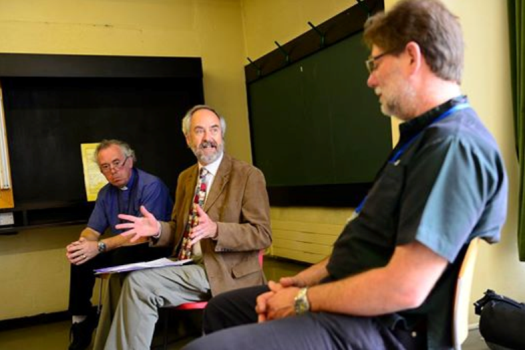As part of its work to further debate around the role of religion in schools, the Accord Coalition held a fringe meeting earlier this month at the United Reformed Church’s biannual General Assembly, debating the future of religious selection in pupil admissions. Joining Accord’s Chair, Rabbi Dr Jonathan Romain, on the panel were the Revd Ian McDonald, Minster of the Southernhay Church in Exeter, and the Revd Tim Meachin, who sits on the Church’s Children & Youth Committee and is a non-stipendiary URC minister and secondary school Science teacher.
Rev McDonald argued that Church Schools should have an identity, but if they were state-funded must be open to all. He argued that Christianity is incompatible with favouritism and that churches were being corrupted by the current system of having to sign records of church attendance for the purposes of school admissions – attendance that he observed often evaporated once a school place had been obtained.
The Revd Meachin shared his experience as a teacher, noting that faith schools can operate fairly, giving pupils a strong sense of mission and what they can go on to achieve, but can also be highly exclusive. He spoke of how he once had an application to teach at a Roman Catholic school rejected on the grounds that he was a non-Catholic. He asserted the value of Church Schools having a faith ethos, but described using discrimination to maintain it as ‘dangerous’.
Rabbi Dr Romain argued that children of all faiths should attend the same schools and that Church Schools should teach about all religions and beliefs, not just their own. He said that fairness was a commonly shared religious value, but that faith selection went against this. To the surprise of some he highlighted that there were a group of state schools operating under the URC’s banner. In the following discussion it was debated whether the Church could build upon the open approaches of its schools and produce a corporate statement around inclusivity.



